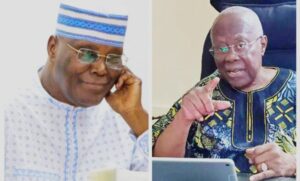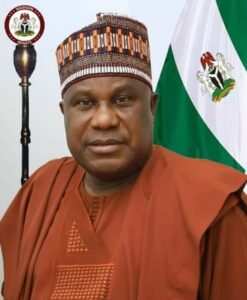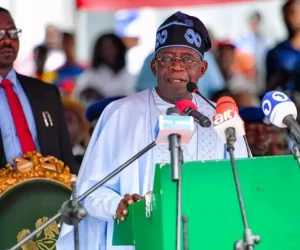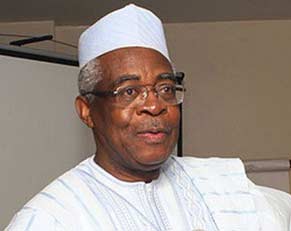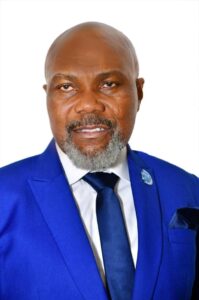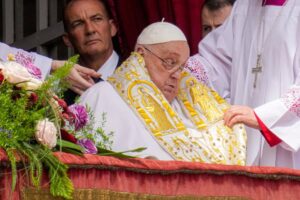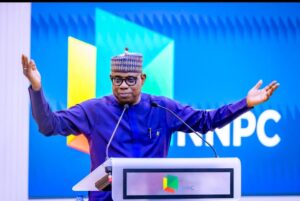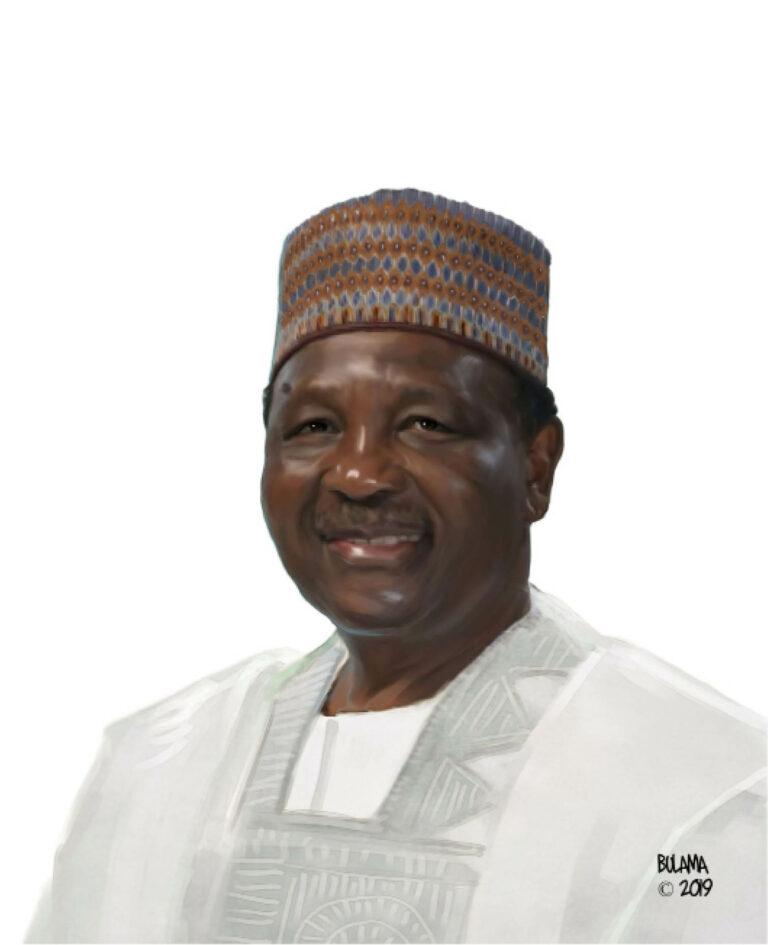
MY STORY, BY GENERAL GOWON
This page is supported by Shell Nigeria. Click here for more information
In this interview, a former military head of state, General Yakubu Gowon (rtd) highlights some of his experiences in office, what transpired before and after the civil war, and restates his belief in a united Nigeria.
You are committed to Nigeria’s unity; how did you take it when the civil war broke out?
I grew up with other Nigerians in a little village called Wusasa. It is Hausa community, but honestly, we knew one another. We either attended church together, or if you were a Muslim, you would go to mosque together, whether you were Hausa, Yoruba, or whatever. The unity of this country is certainly something for me.
I have always said that if there’s no secession, there wouldn’t be a break out and there wouldn’t be a question of civil war because it got to the stage that the situation was getting pretty clear that a part of the country, the South-east wanted to secede.
My duty and profession at that time demanded to make sure that we kept the country together. And that was how it happened.
I had an experience of crisis in some African countries, especially the Congo. I served twice in the Congo and saw the brutality and suffering of the people, but little did I know that a few years later, one was going to face the same problem. We had to do whatever we could to keep the country together.
I can assure you that it was not done out of joy but to make sure that at least we would be able to live together after resolving the problem. That was what we did.
The soldiers were given what we called a list of dos and don’ts like all the Geneva Convention instructions in any international conflict. There were about 12 conditions, such as not permitted to fight against old people, women, children etc. It was only against those who took up arms against you; that’s all. But unfortunately, it happened.
If given another opportunity, what would you have done differently?
I don’t think I would have done anything differently. Every effort was made to make sure that the situation did not degenerate into a breakaway. I had a duty to make sure that the breakup of the country did not happen. We had to fight for two and a half years and made sure that there was no interference from outside. There was no question of allowing any nation or power to get involved in our crisis. If you remember, in the Congo you had United Nations forces made up of Nigerian troops and others from other parts of Africa to deal with the problem.
At least we were able to deal with that problem and make sure we were able to live again as a people. So, I couldn’t have done it differently.
There are still agitations in the South-east for a Republic of Biafra. Does it mean that the three Rs that were declared after the civil war failed to make any impact? What is your message to the people of that region?
The Rs stand for reconciliation, rehabilitation and reintegration, and of course, reconstruction.
The instruction I gave to the fighting troops after the war was, ‘having fought your brothers and sisters, I want you to be soldiers of peace. Do whatever you can to help them get back to their homes and places; and give whatever assistance to them.’
Despite what happened, a lot of courageous Igbo people that lived in the North went back to Kaduna, Kano, Jos etc and got back their properties, which some of their friends had kept for them. They got them back almost immediately. The troops helped to transport them to various parts of the country.
There was no question of trial. Everyone was given the opportunity to go back if they wished. But I gave a special instruction to soldiers, especially officers because they knew that they should not have gone against the government. That was where a few retirements were made.
I had Mr Ukpabi Asika, a brilliant nationalist as administrator and gave him all the assistance he needed. For example, we gave assistance to get the schools going. There was also the medical side, etc. A lot of things were done so that at least you could start getting the reconciliation and integration so that people would be able to go back to various parts of the country.
On my message for the people of the South-east, I would say that the civil war has ended and Republic of Biafra is no more because people have accepted to be reintegrated as Nigerians. Do you want me to sort of say they should continue? No. Don’t ask that question.
At the end of the civil war, the Newsweek magazine described you as the equivalent of Abraham Lincoln of the United States. What do you say to that?
I remember this question of comparing me with Abraham Lincoln. I remember that during the time, somebody called Mr Martin Dent and gave me a book about the American civil war, but because of what was happening, I had no time to read it until towards the end.
When I read that book, I said to myself that what was happening in Nigeria was very much like the American civil war. It was so uncanny.
Honestly, if I had read that book before we prosecuted the Nigerian civil war, if anybody had said that I was trying to make myself look like Abraham Lincoln, I would have found it very difficult to say there was no comparison between us. The only difference was that at the end of it, I was able to continue with the reconciliation and getting the country through. So, sometimes I say to myself that I don’t mind being called the Abraham Lincoln of Nigeria because we had a similar situation and we were able to achieve the same result.
I remember that one English journalist asked why I thought the war was over —what if the people continued with guerrilla warfare? But thank God there was no guerrilla.
Let me deviate a little bit. I thank God that when the war ended, I did not capture Chief Chukwuemeka Odumegwu Ojukwu because I would have probably found it very difficult to handle with public opinion that would have encouraged me to deal with him. This is because I knew that I would have done everything to save his life. But would it be the same thing if it was the reverse?
We heard so many versions of what transpired between you and Ojukwu in Aburi, Ghana. We want to hear from the horse’s mouth. What actually happened? Did you agree to a confederation?
Well, Ojukwu used to say, “On Aburi we stand” and I would say, “From Aburi you will fall.”
The story of Aburi is that we had been trying everything to be able to meet in Nigeria to resolve all the unfortunate things that happened – the killings and all the katakata after the January 15 coup. I was to go to Ibadan the following day, but I was informed that I could not go because there was a reception for officers coming into the brigade – officers like me being posted to that brigade and others from the brigade being posted out. There was a reception by the brigade commander for officers like me and others and I had to attend on that Friday night to ensure that I did the correct thing in that unit. So, that evening I went for the reception, and when it ended, I moved to Ikeja to stay for the night.
Unfortunately, late that night, there was commotion. I was wondering what it was, but nobody told me anything. And I was to take over the battalion the following morning. Then there was movement of troops and vehicles in the unit. After some time, it died down. But after another two to three hours, there was greater movement and commotion and I was wondering what was happening. There was a beagle calling all the troops to a master parade. I was wondering and looking through the window to see what was happening. Luckily, I saw one of the officers, the adjutant of the unit, Captain Martin Ademo, now late. He later became a General. I saw him passing by the duplex, a temporary quarter that I was to stay since the commanding officer’s residence was not ready yet for occupation.
I asked what was happening but he wouldn’t say anything, so I decided to go down and find out. When I met him and asked what the commotion was about, he said General Aguiyi Ironsi, who was the General Officer Commanding (GOC), came and told them that there was some crisis in town affecting the prime minister, Tafawa Balewa and Okotie Eboh, the finance minister and he had come to seek some assistance to see if he could deal with the problem. My first reaction was: Why Ironsi? Why not the brigadier because the chain of command should have come through him? Ironsi should have told the brigadier, who would have related to the battalion commander.
However, I asked where he was and he said he was at the master parade area. So I had to change into civil clothes to see what was happening. When we got there, he briefed me, saying that he wanted some units to be prepared so that they could go and deal with the situation. When he finished, he asked if there were questions.
I did not know that by that time, all the senior officers from my school —Maimalari, Kur Mohammed, Abo Baladinma, Yakubu Pam – had been killed. One of my good friends, Arthur Unegbe, from Ozobulu was also killed and I didn’t know.
I went and I got the Quarter Master to get me some military uniforms, boots, hat etc and I went into town. Luckily enough, we were able to deal with the coup in Lagos. But in Kaduna, they succeeded in killing the premier, his wife and other officials. They were certainly in command, but at least in Lagos, which was the headquarters, we were in charge. I was able to get all the other units to make sure that at least they did not go along with what had just happened. That was how I got involved. I tried to get things under control.
However, it got to a stage when the leadership could not do anything to put things right. But we tried to see if we could meet within the country.
Of course, Ojukwu said that with what happened, he could not be sure of his safety. He asked if we could also go to the East or Mid-west, which was supposed to be neutral, for a meeting since the whole thing seemed to be North versus East.
We got one of the British Airways aircraft for us to meet in the air or on one of the British naval ships. Every effort was made, both by Nigerians and the British for us to meet, but in the end, we had to agree to meet in Aburi. That was where it all started.
I think we went there early January. And as far as I am concerned, we were going for that meeting so that we could agree as military officers.
When I went, I did not take my secretary to the government and officials like advisers. But of course, Ojukwu had a different intention, so he came with all his advisers and prepared a memorandum, which he wanted to be the solution to the problem, as if we were to do an agreement in a class. I said no.
I joked with him and said he came with a pink solution paper. At our training in senior courses, students wrote on a white paper, but the staff had another green paper or something, and the solution paper was usually pink.
It was from his paper that he was reading all the conditions, things he wanted done. We discussed them. We had two days there. The agreement was that when we got back, I would be the one to make a statement on the areas we agreed on.
Unfortunately, I was down with a very serious fever; and honestly, I could not do anything. As soon as Ojukwu got back, he made a statement on what was agreed. I had not seen the document he was using. He made a statement that we had agreed to part or something like that. And early in the morning, David Ejoor called to tell me what Ojukwu had done (I was still on a sickbed).
I asked if that was what we agreed and he said no. That was how the confusion started. Of course, when I got better, we disagreed because that was not the agreement. We were going to discuss most of these things in Nigeria; however, that did not happen. So we had to ensure that something was done.
Ojukwu then started doing all sorts of things, disobeying federal government’s instructions, taking over government’s revenue, all the rolling stock from Port Harcourt and hijacking the Nigerian Airways’ aircraft etc.
A lot of things were happening. Security-wise, people were disappearing etc and the fault was put on northern soldiers. The information was that there were some elements among the recruitment made at that time. There were some bad eggs using the opportunity of being in the military to settle scores.
Ojukwu said his Constituent Assembly said he could break away to form Biafra.
From some of the intelligence I was receiving, it was just a step to the next thing. That was when I created a state of emergency and 12 states to make sure that no region in Nigeria was marginalised because there was the fear of the monolithic North. And the minority group in the East, Biriye, Briggs and others did not want to go along with the agreement given to Ojukwu. They personally came to me several times. I created 12 states to make sure that no place is too big or too strong to threaten the unity of the country.
Lagos State was made up of Lagos central, Epe, Ikeja and Badagry, that was for the old colony of Lagos to become a state of its own. That was probably one of the reasons that after the civil war, the security situation made us to think of establishing a new capital in Abuja so that at least the federal government and a state would not stay in one place. We knew that Lagos was going to remain the commercial capital of the country, as well as the engineer of national activities.
Shagari was my commissioner for finance, and one of the instructions I left for him was that when they were doing the budget, he should make sure that he had some money kept for planning and building the infrastructure of the future capital of Nigeria in Abuja.
Not that I didn’t want to return the country to democracy, but when I was about to do it, politicians had started going at each other. You can remember the popular statement, “If you Tarka me, I Dabo you, if you Dabo me, I Tarka you”.
Honestly, I did not want a sort of situation reflective of what happened before the first coup.
I don’t know what version you heard, but in the end, we had to meet in Benin, me and all the governors at the time to discuss the Aburi agreement and put it in the true context. We invited Ojukwu to be there but he did not come. The only thing I included, which probably made him not to accept it, was that there was no chance for any part of the country to secede without the agreement of two-third of the members of the group. But as soon as we left, Ejoor told me that Ojukwu came to find out what it was.
You presided over Nigeria when the economy of the country was very good. Would you say you used the money judiciously? How do you reconcile the story that you left penniless when your government was overthrown?
I left penniless? But Mr Goodheart, the British parliamentarian, said that when I was leaving Nigeria, I took half of the Central Bank of Nigeria.
Yes, we had a lot of money. During the civil war, we made sure that we did not destroy any of the facilities. We did whatever we could not to damage our oil infrastructure. So, soon after the civil war, they were able to come back and we were able to have a reasonable amount of money. And I can tell you in all honesty that there was discipline in my government. I can tell you that any fund I ever held as head of state was roughly 83,000pounds. That was before we changed to the naira for security reasons. I was forced to do it for the sake of Nigeria.
All we did was in the public interest. I know I was accused of helping certain countries like Grenada, Barbados, but we did the same thing in West Africa too. We helped as much as we could, even at home.
I can say with absolute authority that I may not have anything today, but honestly, at least I have a clear conscience. I thank Idi Amin and Eyadema for the help they gave me to have money to start off with.
You had hints that you were going to be overthrown but you didn’t do anything about it; why?
Who said I didn’t do anything about it? When I was told by the security details that something like that was going to happen, the only two names I was given were people who were supposed to be very close to me – my commander, brigade of guards, Joe Garba and Tony Ochefu. Both of them were from my state, Benue-Plateau. Of course I had to be suspicious of those two names. They were from my state and also Christians, so I could not absolutely believe it. I tried to get Ochefu but could not despite every effort I made. And Joe Garba swore by heaven and earth.
These were people who had helped me to ensure that the country was one; those I trusted. I had to go to Kampala for a meeting. I was the one who made sure that the meeting of the Organisation of African Unity (OAU) was attended by most of the countries so that we could deal with the problem of Africa. As chairman of the OAU, I encouraged most leaders to come so that we could discuss the remaining colonial problem in Africa. We tried to do that and people attended.
I was discussing with the governor that accompanied me to Kampala, the commissioner of police, Farouk Usman, that if the coup happened, as far as I was concerned, it would not create any problem. As far as I was concerned, we would see what happened. My hope was that if God preserved us and we were able to make the 10th year, I would have probably done something about coups and countercoups in Nigeria. That was my prayer.
Usually, I never attended any meeting late, but Mobutu wanted to see me. I am sure he must have heard about the coup already. I got to the conference late, and as I entered, Idi Amin, who was was the chairman, called me. Mr Mbo, a Cameroonian, the head of the education sector, United Nations education, was giving his speech.
When I went to Idi Amin, he showed me a Reuters slip and I saw the news that my government was overthrown. I said I hadn’t heard anything. My high commission had not contacted me to tell me anything, so probably that might be a rumour. Soon after, when that was being done, I was whispering to Farouk that the issue we were discussing on the flight to Kampala and what we were afraid of had happened, but he didn’t quite get it. I didn’t seem to be worried at all, but you could see the worry in Farouk’s face.
That event almost killed the OAU meeting because others started going back. So, I left the meeting place and went to my hotel, and later on to exercise and play some tennis. Honestly, my interest was that Nigeria should continue.
The following day, I had to give a world press conference. I remembered that during my school days at Barewa College in Zaria, we read Shakespeare, who said, “The world is a stage and all the men and women are merely players. They have their exits and their entrances, and one man in his time plays many parts.”
I didn’t go beyond that because if I did, some of you press people would say he wanted to come back. When I got to that,I said, “Ladies and gentlemen of the press, this is my exit and all I want you to do is to give Nigeria the support you gave me in order that the country will progress. That was that.
I went to the United Kingdom to become a student, which they didn’t like because I was taking my tray to get my breakfast.
When I came back and we were going through all the crises, since I could not physically do anything, we formed an organisation called Nigeria Prays, to pray for peace, stability and well-being of Nigeria. Every Nigerian means something to me, so I thought we needed to pray to God to help us.
What is happening in Nigeria today would make you feel sad, but let us not give up in praying and making sure we believe in God.
If you remember, we had a development plan. We started the iron and steel company in Ajaokuta, the petrochemicals in Enugu and the LNG. I was to sign the memorandum of understanding for the LNG to start building four times the size of what was there. We had lots of development – things like Peugeot in Kaduna, and Volkswagen was supposed to be in Lagos, then of course, Steyr in Bauchi, Leylands in Ibadan; and I think Volkswagen in Enugu.
Looking at the situation in Nigeria, what is your advice to the current administration?
Every government that comes has a responsibility to make the country good for every citizen and every part of the country.
(Daily Trust)


